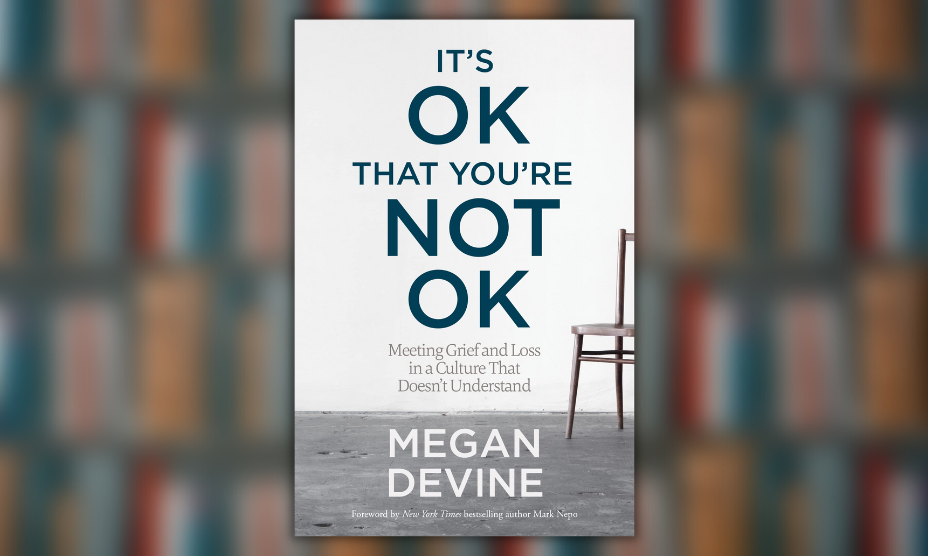Ivan Kramskoi, a Russian painter of the 1800s, has this piece called, “Inconsolable Grief.” A bereaved woman stands in an elegant living room, single roses and flowers neighbor her feet. Beside her lies a wreath with cream-white roses, which contrasts strongly with her black gown. Eyes puffed from sorrowful crying, she holds a silk handkerchief against her mouth, perhaps an act of composure. Her grief appears inconsolable.
This painting’s power is capturing the stillness of a woman in her grief. She does not scream nor does she wail. Kramskoi positions her standing presently in what is with the memory of what was.
Human emotions are intense and, sometimes, incredibly painful. To avoid that hurt, we seek to escape into distraction to “take our mind off everything.” The Jewish way of mourning—the shiva process—brings us into the space of our torment and gradually moves us further from the core in concentric circles.
Feeling the feeling of grief is something each of our guests experienced after their loss. Josh believed it to be fundamental to his mourning, and he considered it something too many people shy away from.
Josh Grajower:
I guess for me at that time, and I think this is something that I think in our community maybe specifically is a struggle, is we don’t give enough space to just not feeling good about things. I think there’s a culture, even if it’s not said in the context of a shiva visit, or it’s not in the context of helping somebody, there’s a big, “kol d’avid rachmana l’tava,” everything Hashem does is for the good. And there’s gam zu l’tovah, also this is for the good. And I want to be as clear as possible. I actually really believe that in my core. It’s not saying that I don’t believe. But at a moment of pain and suffering, I think you need to give room for pain and suffering. And I think you need to let someone experience in its fullest those feelings of, this really hurts and it’s really hard, and let that be.
Josh’s proposition does not sound particularly novel, but there is a profundity to it: “But at a moment of pain and suffering, I think you need to give room for pain and suffering.” Sometimes, we are meant to feel badly and to feel the badness. That is the healthy thing to do. By accepting our emotions, we can begin the healing process. Josh resonated with authors who honored that, as he continued:
And I think for me, there were a few books, there are two books I recommend all the time. CS Lewis wrote a book when he lost his wife called A Grief Observed, which is probably the most poignant, and it’s not so long, expression of that feeling.
And there’s another book by Megan Devine called It’s Okay That You’re Not Okay, which I recommend a lot also. And for me, and I know I said this a lot, but I think everything is personal and everyone needs to tap into what they’re feeling and what they… For me, I really connected to authors who really gave room and space for the feelings of, it’s okay that you’re not okay, it’s okay that this feels like it’s the hardest thing you’ve ever been through and you’re never going to move on. And I don’t feel that way today. And if that’s comforting to anybody listening, I feel very differently today, but I know that when I talk to people, I very much try in to tap into that, of if you feel right now it’s never going to get better, I tell people that’s totally normal, and something that really makes sense in this time, and it’s something that I definitely experienced.
If you believe that there’s someone running the show, so you have someone to be angry at. You have someone to yell at. You have proper expectations.
Dani found that comfort during the shiva process.
David Bashevkin:
[Y]ou write about this in the book, your struggles with depression following the loss. It’s interesting that it was manifest most after the period of mourning. Why do you think? Do you think it’s because, so long as you’re in mourning, you’re still tethered ultimately to your father? The memory itself is what was preserving you?
Dani Ritholtz:
I think so. I think I found… and not everyone does, but I found a lot of comfort in the process of mourning that the rabbis made for us, and I felt like it made a lot of sense, how it’s gradually getting a little less intense over time.
What Dani describes is central to Jewish mourning. For a parent, the year-long mourning has four parts (or three, depending on if you count the first): death to burial, the first seven days, the first thirty days, and the remaining year. During the first week, community members pay condolences, sitting beside the mourners and listening, crying, sharing stories, or just talking. Others deliver meals and assist in logistical preparations. After that period, known as shiva, the mourner begins reintegrating into society, though parties and celebrations are avoided. There is, as Dani said, great comfort in the process.
Sometimes, though, the emotions are more than just variations of sadness. Often, there can be a flaming anger that flares up—specifically directed against God. Rachelle approaches this the same way as any other emotion, as she explained:
If you’re angry, go ahead, be angry. Can you even pretend otherwise? Can you fake it? If you’re angry at God, can you hide it? Go ahead, express it. Hopefully, you pray for people not to be stuck in places like anger, because it’s not constructive. It sometimes could be a poison for your soul.
Rachelle emphasizes that, in giving permission for anger to emerge, one should not see that as a failure.
[I]t doesn’t mean that if this is what you’re experiencing, you should be angry at yourself. I have so many times met people that consider themselves believers. And believers is not observant, it’s two different things. Some are this and not that, some are the other. Not only did they experience something very painful, whatever it is, and not only do they experience anger, that’s a very difficult emotion to experience; they’re also upset and disappointed with themselves. “Why am I angry? I’m a believer. I should be saying that “hakol letova,” it’s all for the better. I should be accepting everything as it comes.”
First of all, I’m upset that they hurt themselves more than they were even hurt to begin with, but the idea is that, I think even there’s a Hasidic thinker that expressed it in a specific way, he says, “If you believe that there’s someone running the show, so you have someone to be angry at. You have someone to yell at. You have proper expectations. If you think that it’s all arbitrary, you can be bitter, but who are you going to be angry at? Why this?” So sometimes it’s davka the believer that has the legitimate reason to be angry. And again, if you’re the person who’s experiencing it, go ahead. Express it. You’re angry. Say you’re angry. Pray it all out.
The description is cathartic. Rachelle, a Torah educator herself, teaches us that feeling your feelings is the path forward, how we begin to heal. That is not to say that the burden of recovery should solely rest upon the individual. Indeed, both Dani and Josh gave personal endorsement and explicit encouragement to those considering (and not considering) therapy. Professional help can make all the difference.
Josh Grajower:
[M]y main advice, actually, is not a book. It’s to get help of a therapist, or specifically, if you can, a therapist who has experience in trauma, someone who really knows this area. Because it’s not just about sharing your feelings and having someone who could talk it through with you, it’s also getting a person who can really guide you through. Especially someone who’s experiencing loss with children, with family members and how to deal with it, that would be my number one recommendation is to get help in that way.
Dani Ritholtz:
The biggest tip, and you probably heard this before, but therapy. That’s the biggest I’d say. That having someone to talk to with absolutely no judgment and no expectations, just to be able to process everything, and also to learn some of the language. I’m still in therapy. I’m a very big advocate.… So I definitely think that therapy was the biggest thing to get that language of loss and to understand the complexities that come with it, because everyone deals with it differently. Both my sisters and my mom deal with it very, very differently than I do, and I think to get that individualized… I’d almost call it an individual language of loss. I think therapy is the best thing you can do.
Kramkoi’s “Inconsolable Grief” can perhaps be a stand-in for every mourner. The bereaved woman is present in her life with a new absence, someone who once was in the picture, but is no longer. Feelings are meant to be felt, not suppressed. It suggests that only when our emotions are given space to enter into the world can we return back as well.





































